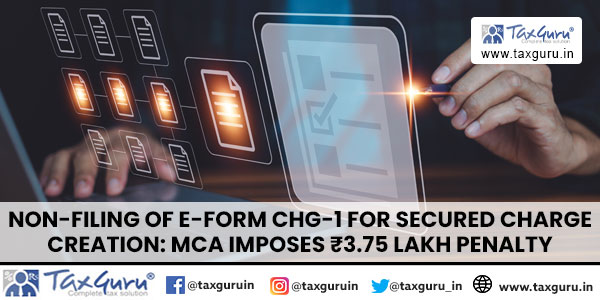Case Law Details
The Income Tax Officer Vs Mrs. Lakshmi Vishwanath (ITAT Delhi)
Briefly the facts of the case are that the A.O. in the assessment order noted that assessee was asked to explain source of the cash deposit in her bank account maintained with State Bank of India. The assessee attended the proceedings before A.O. and filed reply along with letter of Mr. W. Sutong that Shri P.V. Iyer was his family friend and in July, 2009, Shri P.V. Iyer informed Mr. W. Sutong about his housing loan. On 8th September, 2009, Mr. W. Sutong deposited Rs. 16 lakhs, the amount received out of his business receipts, in assessee’s joint bank account with SBI Account. On learning about the transaction, Shri P.V. Iyer, husband of assessee realised that this is not right way to accept such a huge amount and he returned back the amount of Rs. 14 lakhs on the same day and Rs. 1.00 lakh on 10th September, 2009 as evident from pass book entry, amount of Rs. 80,000 returned back in the month of December, 2012 and balance of Rs. 20,000 are kept in safe deposit for him. The assessee attended the proceedings. But, did not file any documentary evidence. The A.O. was not satisfied with the explanation of assessee and added back Rs. 16.18 lakhs under section 68 of the I.T. Act. The A.O. initiated penalty proceedings for violation of Section 269SS separately. The A.O. vide separate order levied penalty under section 271D of the I.T. Act in a sum of Rs. 15,80,000 which is sum equal to the amount of cash loan so taken or accepted.
Held by ITAT
In this case, the A.O. merely initiated penalty proceedings separately for violation of Section 269SS of the I.T. Act. He did not record any satisfaction under section 271D of the I.T. Act before initiating the penalty proceedings under section 271D of the I.T. Act. Further, the explanation of assessee on merit clearly suggest that assessee had a “reasonable cause” for violation to comply with the provisions of Law because no cash given directly to assessee but deposited at Shilong Branch over which assessee did not have any control. The assessee immediately acted on the matter and refunded the amount in question. The finding of fact recorded by Ld. CIT(A) have not been disputed through any evidence or material on record. Therefore, considering the issue in the light of “reasonable cause” under section 273B of I.T. Act, for failure to comply with the provisions of Law, no penalty is leviable in the matter.
Full Text of the ITAT Order is as follows:-
Both the cross-appeals are directed against the order of the Ld. CIT(A)-21, New Delhi, dated 16th March, 2017 for the A.Y. 2010-2011, challenging the cancellation of penalty and deletion of part penalty under section 271D of the I.T. Act, 1961.
2. Briefly the facts of the case are that the A.O. in the assessment order noted that assessee was asked to explain source of the cash deposit in her bank account maintained with State Bank of India. The assessee attended the proceedings before A.O. and filed reply along with letter of Mr. W. Sutong that Shri P.V. Iyer was his family friend and in July, 2009, Shri P.V. Iyer informed Mr. W. Sutong about his housing loan. On 8th September, 2009, Mr. W. Sutong deposited Rs.16 lakhs, the amount received out of his business receipts, in assessee’s joint bank account with SBI Account. On learning about the transaction, Shri P.V. Iyer, husband of assessee realised that this is not right way to accept such a huge amount and he returned back the amount of Rs.14 lakhs on the same day and Rs. 1.00 lakh on 10th September, 2009 as evident from pass book entry, amount of Rs. 80,000 returned back in the month of December, 2012 and balance of Rs. 20,000 are kept in safe deposit for him. The assessee attended the proceedings. But, did not file any documentary evidence. The A.O. was not satisfied with the explanation of assessee and added back Rs. 16.18 lakhs under section 68 of the I.T. Act. The A.O. initiated penalty proceedings for violation of Section 269SS separately. The A.O. vide separate order levied penalty under section 271D of the I.T. Act in a sum of Rs. 15,80,000 which is sum equal to the amount of cash loan so taken or accepted.
2.1. The Ld. CIT(A) considering the explanation of assessee noted that the amount of cash loan was never been received by assessee in hand instead the cash has been deposited directly in the Bank account of assessee by Mr. W. Sutong from Shillong Branch over which the assessee had no control. Rather by taking instant action, the assessee has refunded back the impugned cash on the same day which goes to prove the bonafide of the assessee and completely rules out any foul play on assessee’s part. The A.O. has not offered any comments on the same. The Ld. CIT(A) also noted that impugned cash was never used by assessee as out of Rs. 16 lakhs, the assessee has returned back Rs. 14 lakhs on the same day, whereas another Rs. 1 lakh was refunded merely after two days. Therefore, penalty to the extent of Rs. 15 lakhs was cancelled. The penalty for Rs. 80,000 was confirmed.
3. The Learned Counsel for the Assessee reiterated the submissions made before the authorities below and submitted that the addition of Rs. 16,18,000 in assessment year under appeal on quantum remained subject matter in appeal before ITAT, Delhi Bench in Departmental Appeal in ITA. No. 4579/2013 and vide order dated 20th March, 2015, the departmental appeal has been dismissed. The Ld. CIT(A) in this case deleted the addition of Rs.15,80,000 by considering the explanation of assessee as is noted in the impugned order of the Ld. CIT(A) on penalty matter. The Learned Counsel for the Assessee therefore, submitted that bonafide of the assessee is not disputed and further submitted that A.O. did not record any satisfaction under section 271D of the I.T. Act before initiating the penalty proceedings.
4. On the other hand, Ld. D.R. relied upon the orders of the authorities below.
5. After considering the rival contentions, I am of the view that no penalty is leviable in the facts and circumstances of the case. The Hon’ble Supreme Court in the case of CIT vs. Jai Laxmi Rice Mills (2015) 379 ITR 521(SC) held as under :
“For the assessment year 1992-93, the assessment order was passed on the assessee on February 26, 1996, ex-parte. While framing the assessment, the Assessing Officer observed that the assessee had contravened the provisions of section 269SS of the Income-tax Act, 1961, and because of this the Assessing Officer was satisfied that penalty proceedings under section 271D of the Act were to be initiated. On appeal, the Commissioner (Appeals) by order dated December 5, 1996, set aside the assessment order with a direction to frame the -assessment denovo after affording adequate opportunity to the assessee. Meanwhile penalty under section 271D was levied by order dated September 23, 1996, i.e., before the appeal of the assessee against the original assessment order was heard and allowed thereby setting aside the assessment order itself. After remand, the Assessing Officer passed a fresh assessment order but in this assessment order, no satisfaction regarding initiation of penalty proceedings under section 271D of the Act was recorded. The Tribunal as well as the High Court held that the penalty order passed on the basis of the original assessment order could not still survive when that assessment order had been set aside because the satisfaction recorded therein for the purpose of initiation of the penalty proceedings would also not survive. On further appeals :
Held, dismissing the appeals, that in the fresh assessment order there was no satisfaction recorded regarding penalty proceedings under section 271D of the Act though in that order the Assessing Officer wanted penalty proceeding to be initiated under section 271(1)(c) of the Act. Thus, the penalty under section 271D was without any satisfaction and, therefore, no such penalty could be levied.”
5.1. In this case, the A.O. merely initiated penalty proceedings separately for violation of Section 269SS of the I.T. Act. He did not record any satisfaction under section 271D of the I.T. Act before initiating the penalty proceedings under section 271D of the I.T. Act. Further, the explanation of assessee on merit clearly suggest that assessee had a “reasonable cause” for violation to comply with the provisions of Law because no cash given directly to assessee but deposited at Shilong Branch over which assessee did not have any control. The assessee immediately acted on the matter and refunded the amount in question. The finding of fact recorded by Ld. CIT(A) have not been disputed through any evidence or material on record. Therefore, considering the issue in the light of “reasonable cause” under section 273B of I.T. Act, for failure to comply with the provisions of Law, no penalty is leviable in the matter.
6. Considering the above discussion in the light of judgment of the Hon’ble Supreme Court in the case of CIT vs. Jai Laxmi Rice Mills (supra), I set aside the orders of the authorities below and cancel the entire penalty.
7. In the result, appeal of the Revenue is dismissed and appeal of the Assessee is allowed.
Order pronounced in the open Court.



























